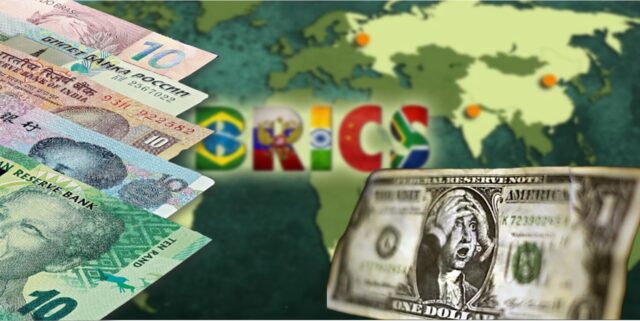
(3 minutes read)
Will the new focus on a new BRICS currency, now expanded to include six more countries, including two more from Africa-Ethiopia and Egypt- abet the global move towards de-dollarization
Will the new focus on a new BRICS currency, now expanded to include six more countries, including two more from Africa-Ethiopia and Egypt- abet the global move towards de-dollarization? If statistics is a barometer, there are indications that the expanded bloc can work towards that, however far-fetched or ill or well – conceived that concept may be as of now. As of March 2023, BRICS collectively represent a substantial 31.5% of the world’s GDP, though initially it was quoted as close to 40% of the global GDP. In terms of the bloc representing world population is also impressive at close to 40%.
Read Also:
https://trendsnafrica.com/brics-summit-takeaways-for-africa/
One of the most significant aspects of this expansion is the concerted effort to reduce dependence on the U.S. dollar. That is what most of the countries in the world are aspiring for as more than 90% of global trade is denominated in terms of dollars as of now. Despite the emergence of the Yuan (RMB), Euro, and Yen, the dominance of the dollar still continues. Efforts at various points of time to take on the dollar did not progress well. But, the strive towards a new currency signifies a move towards a multipolar world economy, which can less depend on the United States.
Read Also:
https://trendsnafrica.com/brics-g7-accounted-for-50-of-cameroons-imports-in-the-past-five-years/
But the question arises how the BRICS currency replace the dollar? How representative it can be especially when more than a lion’s share of the combined GDP of the newly expanded BRICS is contributed by China, India, and Russia. There is also a question being asked as to who would call the shot in the BRICS. Analysts say that there is a clear move by China to control the lever of power in still to be evolved bloc. It is prudent to watch for some more time to assess the developments in the bloc before writing a script for re-drafting the global financial architecture.











